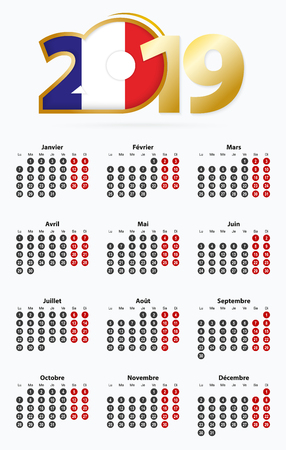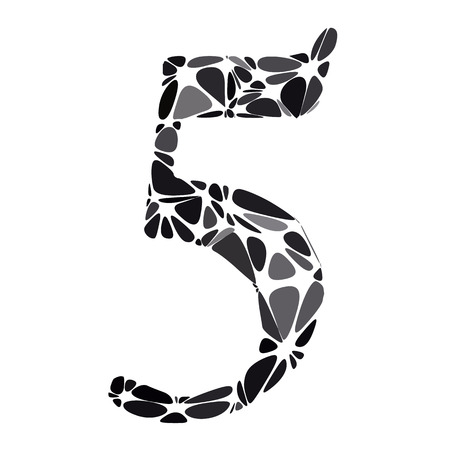Introduction to Dreamwork and Intuition
Dreamwork is more than just remembering your nightly adventures—its a powerful tool for self-discovery and spiritual growth. In the world of divination, intuition is everything. Its that gut feeling or inner nudge that guides us when we read tarot cards, interpret runes, or connect with spiritual energies. But did you know that working with your dreams can actually help strengthen this intuitive muscle? By paying attention to the symbols, emotions, and stories that unfold while you sleep, you start to tune in more deeply to your subconscious mind. This connection isnt just helpful—its essential for anyone interested in spiritual practices or divination. Whether youre new to dreamwork or have been journaling your dreams for years, exploring the link between dreamwork and intuition opens up a whole new level of understanding and insight. So lets dive in and see how decoding our nighttime journeys can make us sharper, wiser, and more in touch with our own inner guidance.
2. Understanding Intuition in Divination
When it comes to divination practices—like tarot, astrology, or oracle cards—intuition is often the secret ingredient that makes readings feel truly insightful and personal. In the United States, where self-help and spiritual wellness are booming industries, many people see divination not just as a mystical hobby but also as a form of self-discovery and empowerment. Here’s how intuition fits into popular American divination practices:
The Role of Intuition Across Popular Divination Tools
| Divination Tool | Typical Use | How Intuition Shows Up |
|---|---|---|
| Tarot Cards | Exploring personal questions, guidance for life decisions | Reading beyond card meanings; sensing connections between cards; interpreting imagery based on “gut feelings” |
| Astrology | Understanding personality, timing of life events | Intuitively connecting chart aspects to real-life scenarios; feeling out themes beyond textbook interpretations |
| Oracle Cards | Daily inspiration, affirmation, emotional support | Picking cards by “what feels right”; drawing connections between messages and current emotions or situations |
Why Americans Value Intuition in Divination
A lot of Americans approach divination with a blend of curiosity and practicality. Sure, there’s an interest in mystical symbolism, but for most people, it’s about making sense of everyday life or tapping into personal wisdom. Rather than relying solely on rigid rules or memorized meanings, there’s a cultural emphasis on using intuition to personalize each reading. This means trusting those subtle nudges—a sudden thought, a physical sensation, or an emotional response—that guide you toward deeper understanding.
The Balance Between Book Knowledge and Inner Knowing
No matter which tool you use, it’s common for American practitioners to start with foundational knowledge (like tarot card definitions or astrological houses) and then let intuition fill in the gaps. The more you practice, the more you’ll notice moments where your inner voice seems to “speak up,” offering insights that go beyond what any book could teach. This blend of study and intuitive flow is what makes each reading unique—and why dreamwork can be such a powerful way to grow your intuitive skills for divination.

3. How Dreams Reflect Inner Wisdom
Dreams are like secret messages from the deepest parts of our minds, offering us access to the wisdom that’s often hidden in our daily lives. When we’re asleep, the usual noise and distractions fade away, letting our subconscious step forward and speak more clearly. This is why so many people throughout history have looked to their dreams for answers, inspiration, and even warnings.
For anyone practicing divination—whether it’s tarot, astrology, or any other intuitive art—dreams can serve as a powerful bridge to your inner guidance system. They often deliver insights in the form of symbols, emotions, or storylines that might not make logical sense at first but can carry deep meaning once you reflect on them. These dream messages can act as gentle nudges, showing you what needs attention or where your intuition wants you to focus.
By paying attention to your dreams and learning to decode their language, you open yourself up to a wellspring of personal insight. This process helps you grow more confident in trusting those gut feelings and intuitive hits during your waking life—and especially when you’re engaging in divination practices. In short, dreamwork isn’t just about analyzing weird nighttime stories; it’s about tuning into your own inner compass and allowing it to guide you toward greater clarity and self-understanding.
4. Dream Journal Basics and Tips
If you want to boost your intuition for divination, keeping a dream journal is a super practical way to get started—even with a jam-packed American schedule. Jotting down your dreams helps you notice patterns, symbols, and feelings that can guide your readings later on. Here’s how to make it doable (and even fun!) in your busy life.
Why Keep a Dream Journal?
A dream journal isn’t just for recording wild nighttime adventures—it’s an awesome tool for personal growth and intuitive development. The more you pay attention to your dreams, the more you’ll trust those subtle gut feelings that pop up during tarot, oracle, or other divinatory practices.
Easy Dream Journaling Tips for Busy People
| Tip | How It Helps |
|---|---|
| Keep it by your bed | You’ll be ready to write the moment you wake up—before details slip away. |
| Use voice memos | If mornings are hectic, record quick notes on your phone and write them down later. |
| Set a 2-minute timer | No time? Promise yourself just two minutes. Even short entries add up! |
| Don’t judge or edit | Your dream journal is private—let it be messy, weird, or incomplete. All dreams count. |
| Highlight recurring symbols | Underline or star anything that repeats; these could be keys to your intuitive language. |
| Date each entry | This makes it easier to spot cycles and patterns over weeks or months. |
Quick-Start Dream Journal Template
If you’re not sure what to write, try this simple format:
- Date:
- Main dream events:
- How did I feel?
- Symbols or people:
- Any connections to my daily life or readings?
Troubleshooting: What if I Don’t Remember My Dreams?
No worries! Just jot down any fragments—a color, a mood, even a single image. Over time, your brain gets the message that dreams matter and will start serving up more memorable ones. Consistency is key; don’t give up if it takes a few weeks.
Bottom Line: Make It Work for You
Your dream journal doesn’t have to be fancy or perfect. Use whatever method fits into your routine—a notebook, an app, sticky notes. The most important thing is regular attention. With practice, you’ll notice intuitive nudges showing up not just in your dreams but also in your everyday divination sessions.
5. Practical Exercises to Link Dreamwork and Divination
If you’re ready to blend your nightly dreams with your favorite divination practices, these easy-to-follow exercises will help you strengthen your intuition and make dreamwork a regular part of your spiritual toolkit. Let’s break it down into simple, actionable steps that anyone can try—no mystical degree required!
Step 1: Set Your Intention Before Bed
Before you hit the pillow, take a few minutes to focus on what you’d like insight on. Hold your tarot deck, runes, or pendulum in your hands, and say something like, “Tonight, I invite my dreams to offer wisdom about [your question].” This helps prime your subconscious for meaningful dream messages.
Step 2: Keep a Dream Journal by Your Bed
The moment you wake up, jot down anything you remember from your dreams—even if it’s just feelings or colors. Don’t worry if it seems random; sometimes the most cryptic images hold deep meaning when paired with divination later on.
Pro Tip:
If you struggle to remember dreams, write down the last thing you were thinking before sleep or draw quick sketches of impressions.
Step 3: Morning Reflection and Connection
After recording your dreams, pull a single tarot card or rune, or use another divination tool. Ask: “How does this relate to my dream?” Look for connections—maybe the imagery matches, or the message deepens what you dreamed. This step bridges the gap between dream symbols and divinatory guidance.
Step 4: Weekly Pattern Spotting
At the end of the week, review your journal entries and any divination readings. Are there repeating symbols? Did certain cards keep showing up after similar dreams? Noticing these patterns can reveal personal symbolism unique to you and help fine-tune your intuitive skills.
Bonus Group Activity:
If you’re part of a study group or have witchy friends, share one of your dream-divination combos and invite others to interpret or add insights. Sometimes, outside perspectives can unlock meanings you might miss!
Step 5: Create a Ritual for Integration
To cement the connection between dreamwork and divination, create a small ritual—light a candle, meditate with your dream journal, or place an object from your reading under your pillow. The more intentional energy you put into linking these practices, the stronger your intuition will grow over time.
Remember: There’s no right or wrong way to explore this connection. The goal is to have fun experimenting while building trust in your inner guidance. Happy dreaming—and even happier divining!
6. Real-Life Stories and American Pop Culture Examples
Dreams and intuition have always fascinated people, especially when it comes to uncovering hidden truths or predicting the future. In American culture, there are countless examples—both from real life and pop culture—where dreams or a gut feeling played a starring role in divination.
Everyday Anecdotes: When Dreams Guide Decisions
Many Americans can recall a time when a vivid dream nudged them toward a certain decision. For example, some people have reported dreaming about numbers that later became winning lottery picks, while others have avoided accidents because of a warning dream. These stories show how tuning into our dreams can sometimes feel like having an intuitive superpower.
Pop Culture Moments: Dreams as Plot Twists
American movies and TV shows often use dreams as tools for intuition and foreshadowing. Think about “Twin Peaks,” where Agent Cooper relies on cryptic dream imagery to solve mysteries, or the classic film “Field of Dreams,” where the main character follows a mysterious voice in his dreams that leads him to build a baseball diamond. These moments resonate because they reflect our collective belief that dreams might hold deeper meaning or guidance.
Celebrities Who Swear by Dreamwork
Even celebrities share their experiences with intuitive dreaming. For instance, Oprah Winfrey has spoken about how she trusts her gut feelings—often informed by dreams or flashes of insight—to make important decisions. This openness helps normalize dreamwork and intuition as practical tools, not just mystical ideas.
Blending Tradition with Modern Life
Whether through personal anecdotes or on-screen adventures, these stories make dreamwork feel accessible and relevant. They remind us that intuition isn’t just for psychics or mystics; it’s something anyone can cultivate—especially when we pay attention to what our dreams are trying to tell us.
7. Conclusion: Integrating Dreamwork into Your Intuitive Practice
Bringing dreamwork into your daily divination practice is like giving your intuition a power boost. As we’ve explored, dreams are a natural bridge to your subconscious, offering symbols, stories, and feelings that can deepen your understanding of tarot cards, runes, pendulums, or whatever tool you love. By paying attention to your dreams—jotting them down, interpreting their themes, and noticing recurring symbols—you’ll start spotting connections between your dream world and your readings. Remember, there’s no “one right way” to do this! Start small: keep a dream journal by your bed, reflect on a dream before pulling a card in the morning, or ask for guidance through dreams before a reading session. Over time, you’ll notice your intuitive hits becoming sharper and more personal. Trust the process, stay curious, and let both your dreams and divination tools guide you. The more you weave dreamwork into your spiritual routine, the more natural—and fun—it will feel. Happy dreaming and happy divining!


